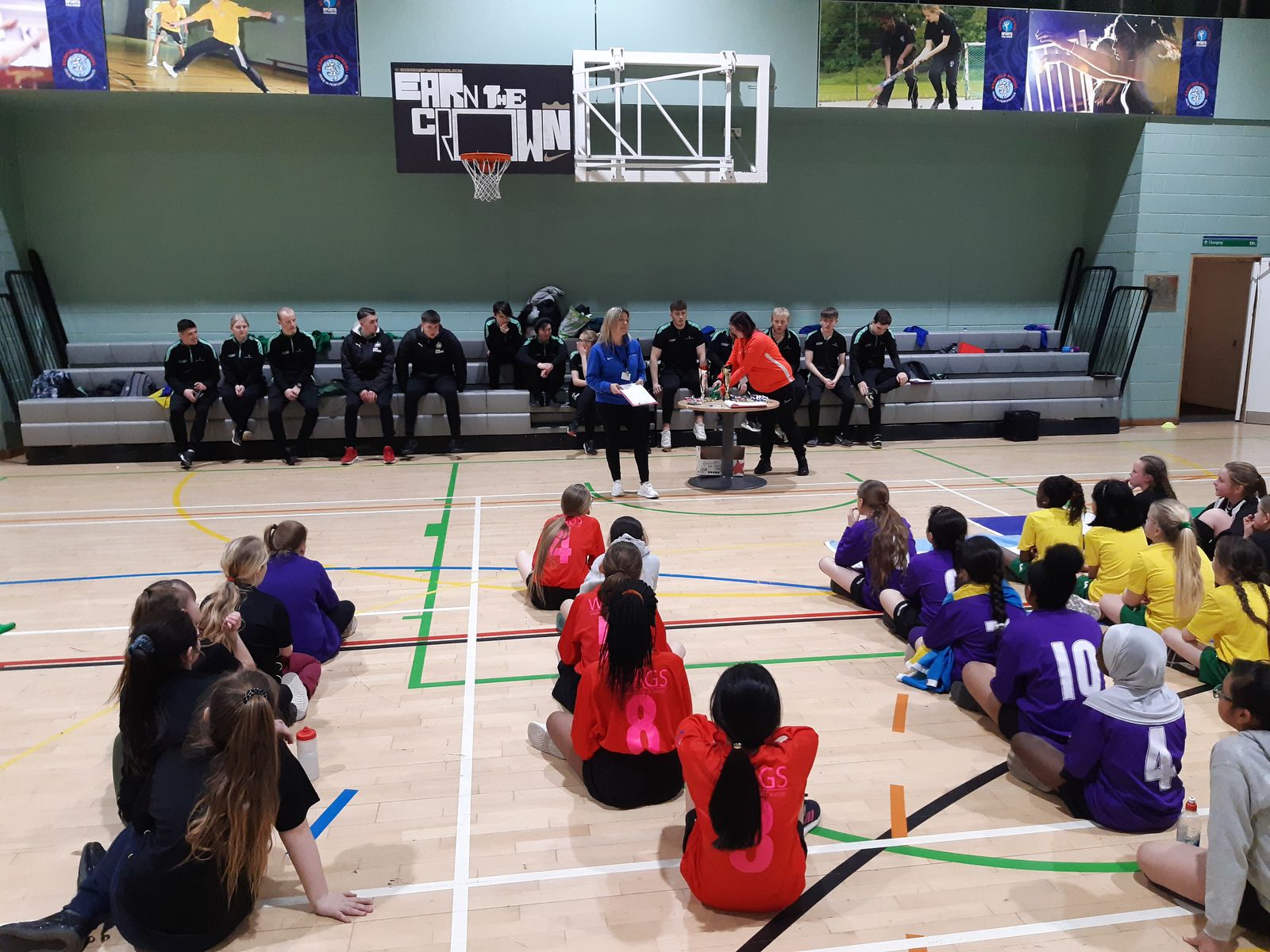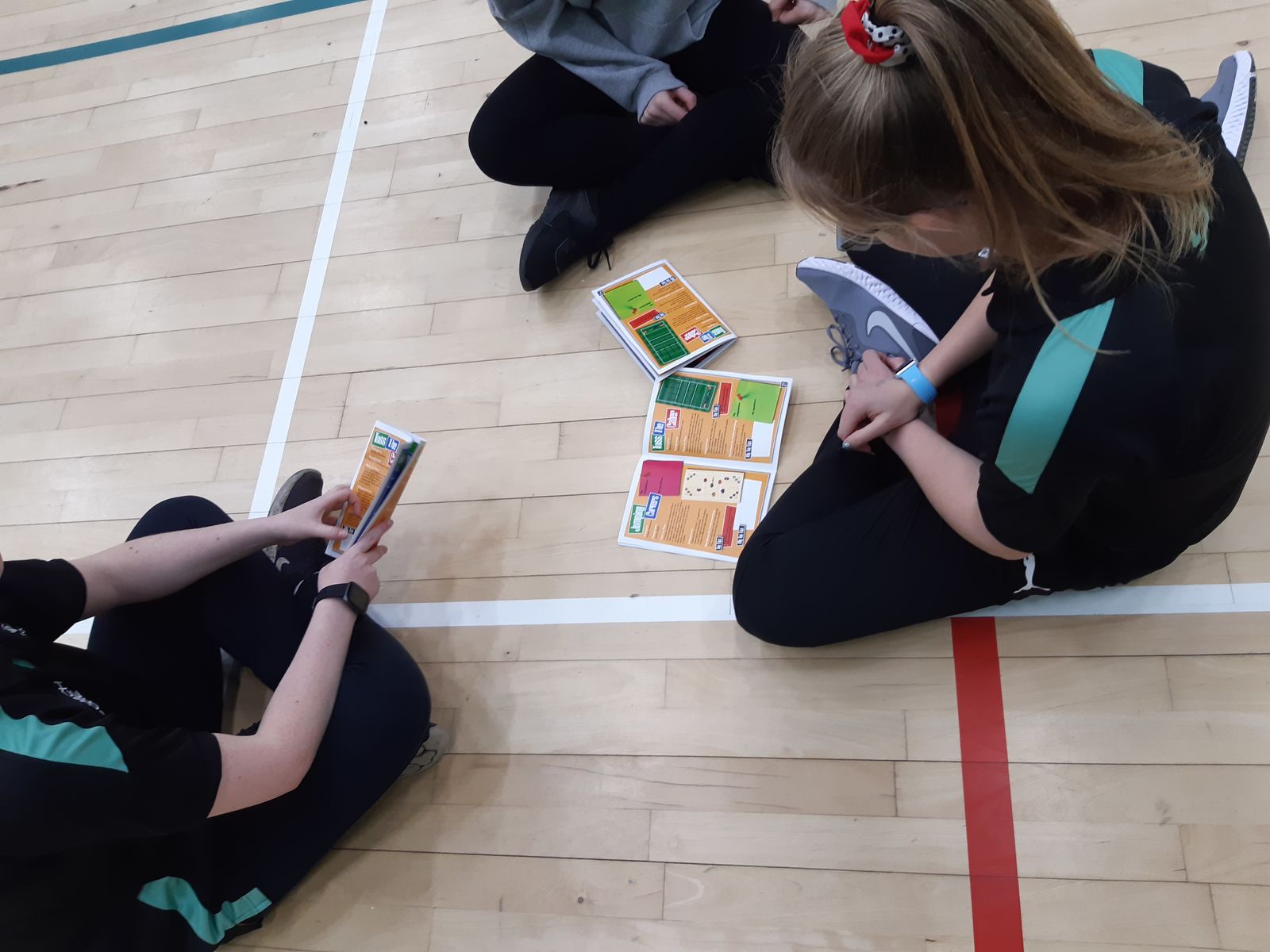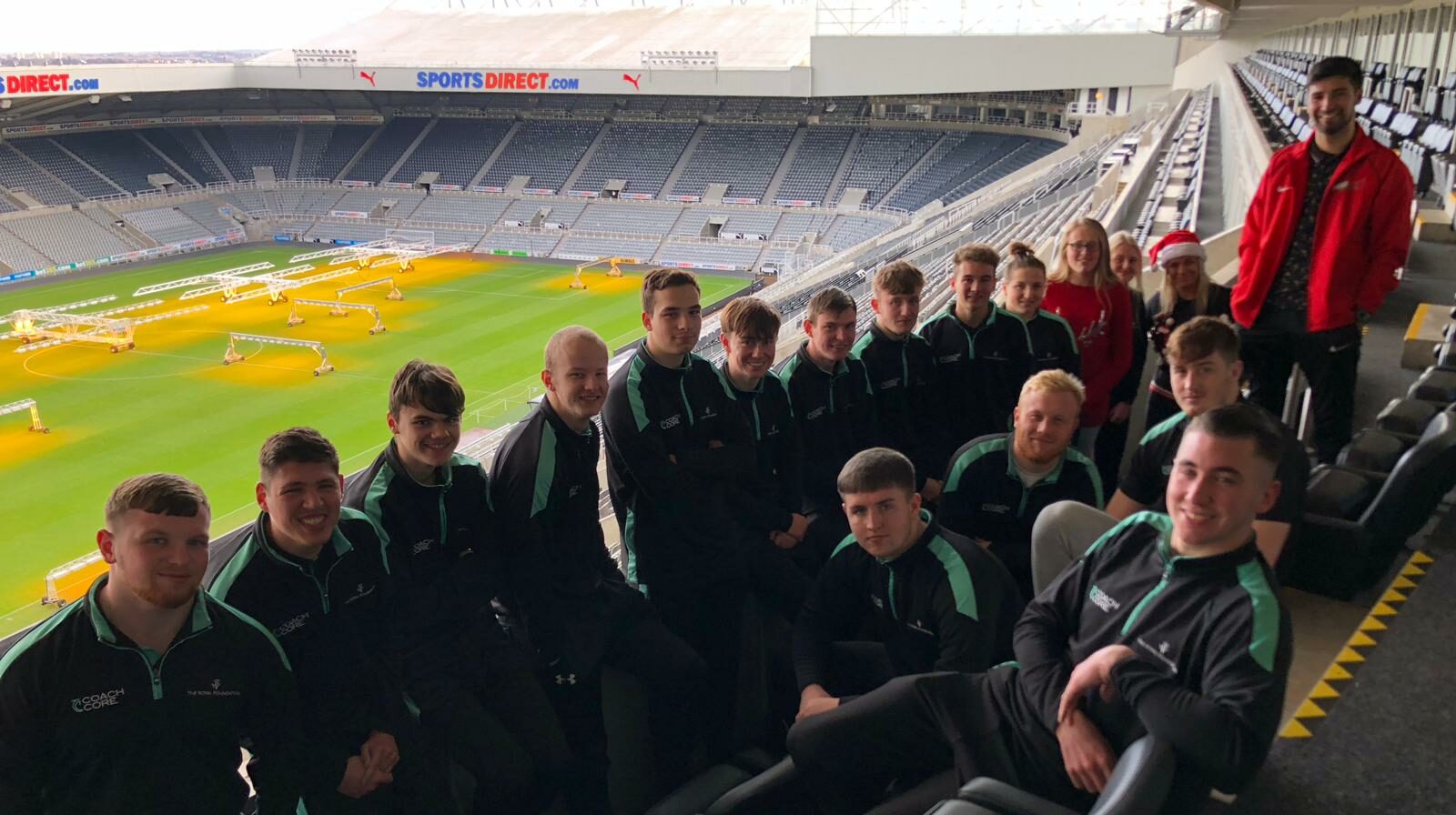16 Years into a 3 Year Project
An interview with Hat-Trick, the Coach Core apprentice employer working the most disadvantaged communities in Newcastle-Upon-Tyne
Earlier this year we grabbed a moment with Keith Parsons – Hat-Trick’s Community Sports Manager. Hat-Trick work the most disadvantaged communities in Newcastle-Upon-Tyne and have employed 5 Coach Core apprentices to date. The organisation was founded in 2005 as a partnership between the FA and UEFA:
“19 Hat-Tricks were set up nationally, to work in disadvantaged communities doing football with disadvantaged children and young people. The name Hat-Trick comes from it being a 3 year project… 16 years later and we’re still here! We’ve really diversified from football, we do all sorts of different sports, we do leadership, we do volunteering with qualifications and awards.”
Hat-Trick typically have about 70 sessions a week in schools and communities. On any given they day they might do a lunchtime club and then a curriculum session in school and then an after-school club, which will then lead on to community sessions at venues close by.
Keith explains how Hat-Trick is able deliver their services where they are needed most, to ensure that no-one is facing the barrier of travel to stop them attending:
“One of the beauties of the way that we deliver is we can do it anywhere. We don’t need a brand new, fully-lit 4G pitch, or a sports hall, we can just turn at a piece of land or a bit of grass, get some portable goals out, get our music on (all our sessions have music playing alongside them to create that environment which is welcoming for children and young people) and we can do that anywhere. We can do formalised football or sports coaching, but we can also just play fun games and activities for kids on estates.”

Hat-Trick’s success comes from the close connections their staff have with the communities they work in – because they are part of them:
“We try and get local young people from sessions that we do in schools or communities taking that pathway from player to volunteer, to maybe casual coach, apprentice and then – if we’re fortunate enough with funding – maybe get a full-time job with us. Of the staff team we’ve got now, 8 of the 9 of us have taken that journey.”
Keith says that the virtuous cycle system of player->volunteer->staff means that the organisation’s growth is slower than it could be, but firmly believes that it’s worth it because the deep connection between the coach and session participants means the quality of their programmes is much higher:
“With our coaches being local people, they know the area, they know the estates that they work on. We’ll match somebody up with sessions around where they live, where their family live, where their friends, younger brothers, sisters, peers, and the school they went to (so they’ve got a relationship with the teachers already). It helps us give aspirations to the younger generation as well – so when they see someone they know, someone who they grew up with – who is perhaps just a little bit older than them – working full-time in sport, it also allows young people and volunteers to think ‘hold on a second, school might not be for me, but I’m really passionate about sport, about helping people, I’ve got a direct link with Hat-Trick and I can take that journey myself’ – and we’ve had lots of people do that. And whether they’ve come to work for Hat-Trick full-time or they’ve got a job elsewhere in sport through our partners, we’ve got a real track record of success with that.”

Hat-Trick took on two Coach Core apprentices in 2019, and they were two completely different people from different backgrounds. One was a mother of three, working full-time as a dog hairdresser. She was introduced to Hat-Trick through one of their coaches and started volunteering, as well as being a mum and doing a full-time job. When the apprenticeship opportunity came up she jumped at it because she’s so passionate about sport. The other was a young man from one of their community sessions who had some special educational needs and was struggling a bit at school but who loved sport and wanted to get out and help people from the community. When the opportunity came to take them both on as apprentices Hat-Trick leapt at it:
“For the first 6 months it was going absolutely superb, delivering in schools and the community – before the pandemic hit. All credit to both of them for sticking it out, in adapting what they did, logging on to their education days… they didn’t have the experience of their apprenticeship that we would have wanted because of the pandemic, but it’s really given them some additional skills that they wouldn’t have otherwise had, about learning to adapt, to overcome challenges and barriers, which has led to them getting full-time employment with Hat-Trick now, they’ve been with us for the last 6 months.”
During the pandemic Hat-Trick went from 70 sessions a week to just a handful, working with keyworker’s children, 2 or 3 at a time.
“Our coaches were also delivering food to people’s houses, we were door-knocking to make sure people and families were ok. Through our partners Streetgames and the city council we got activity packs which had things you could do in the house – colouring in sets, bouncy balls – we were just delivering them door to door and checking people were ok.”
And some of those changes have stuck:
“The door-knocking and food delivery is something we’ve now added to our services, particularly because of issues surrounding holiday hunger and food poverty is something we’re doing now, particularly during school holiday time.”

Hat-Trick has now taken on 3 more Coach Core apprentices, in part to cope with the increased demand now they are able to be back in schools and delivering community sessions. The apprentices are shadowing senior coaches until Christmas and from New Year they’ll be designing and leading their own sessions.
We asked Keith what he’s sees change in the apprentices over the course of the programme:
“Confidence is a really big thing. Things are hard. They [come from] tough communities, and tough places to grow up and live. So confidence grows massively. When they learn these skills and get tutoring at the education days we can see them change massively in terms of their self-esteem. I suppose another thing would be that gaining those skills and that confidence, we can see the impact it has – of them being local people – on the children and young people too, in terms of them gaining confidence and feeling comfortable and feeling part of something special. Having local young people like our apprentices at the heart of that is really what we’re all about.”
With the Northumberland, Tyne & Wear programme being the site where we are trialling the Level 3 Community Sports and Health Officer (the next level up from our standard Level 2 Community Activator Coach), Hat-Trick were asked if they’d like to take part:
“The Level 3 – as soon as we were offered it, we immediately knew we wanted our first two (level 2) apprentices to do it. It’s a really good qualification, it sets you on that next level as a coach, getting a level 3. In terms of developing their skills, it’s exactly at the right time in their coaching career and we think it’s just going to allow us to add everything that they’re going to gain into our programme, so developing better quality programmes for us to deliver into schools and communities – it’s going to be fantastic.”
Going forward, Hat-Trick would like to expand out to other areas in the region, and are looking able to do so because of the increased capacity that Coach Core apprentices can bring an organisation:
“We’ve very much solidified what we do – and do what we do in the areas where we work to the highest quality. We now think that, because of Coach Core and the apprentices that are coming through, we might be able to expand a little bit quicker and then be able to work in other areas.”
The positive impact that Hat-Trick have on their community is obvious, and as a result a number of the their staff are up for awards. But when asked about them Keith’s answer shines a light on why they are so impactful:
“We always try to remain humble and remain modest about what we do. The real recognition that we’re looking for is from the children and young people who attend our sessions and will keep coming back based on the quality of our sessions and the relationship they’ve got with the coaches who work for us. That, to me, is the biggest success story that we could possibly have.”
